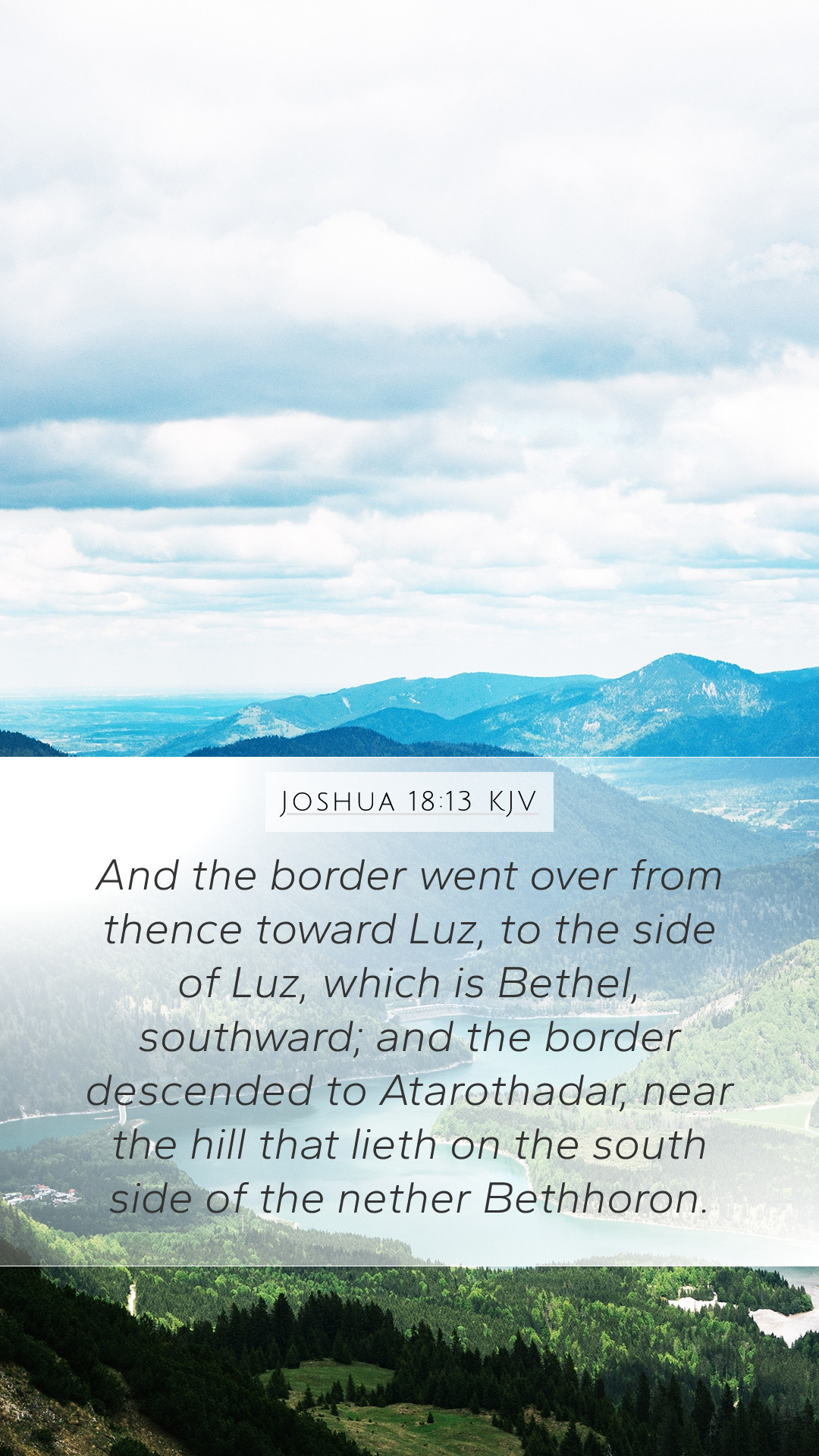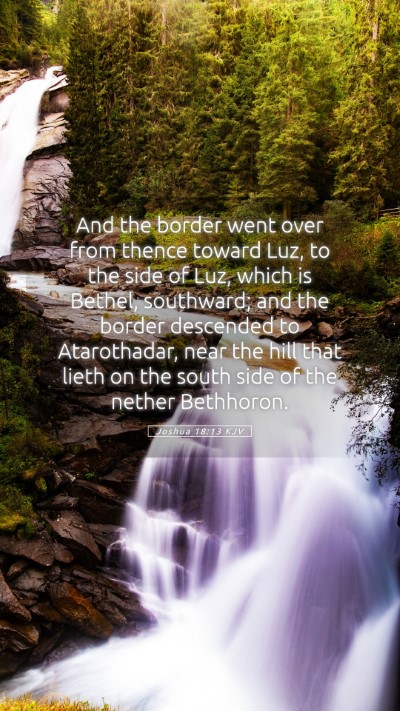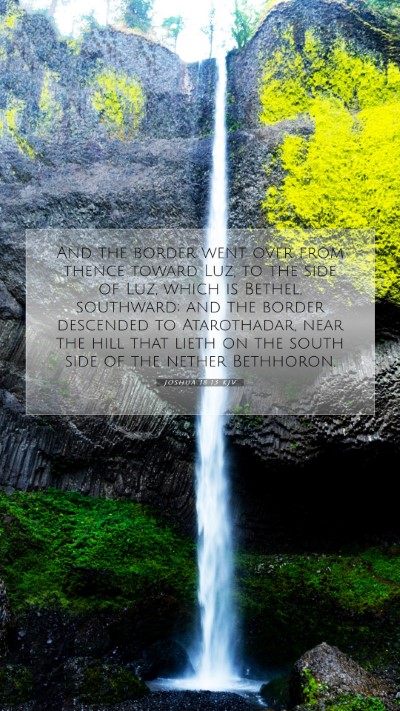Understanding the Meaning of Joshua 18:13
Bible Verse: Joshua 18:13 - "And the border went over from thence toward Luz, to the side of Luz, which is Bethel, southward; and the border descended to Atarothadar, near the hill that lieth on the south side of the nether Bethhoron."
Bible Verse Explanation
This verse is part of the narrative describing the division of the Promised Land among the tribes of Israel. It illustrates the intricate details of the borders assigned to the tribe of Benjamin. Understanding this verse requires a comprehension of both the historical context and the geographical locations mentioned.
Historical Context
During the time of Joshua, after the Israelites entered the land of Canaan, it became essential to delineate boundaries for each tribe. These distributions were not arbitrary; they were intended to ensure that each tribe received an equal opportunity to inhabit and cultivate the land God had promised them.
Geographical Significance
The locations referenced in Joshua 18:13 — Luz, Bethel, Atarothadar, and the Nether Bethhoron — are significant for understanding the territory of Benjamin. The mention of these places shows the strategic and vital areas that were central to Israel's territorial expansion.
Commentary Insights
- Matthew Henry: Henry highlights that the borders of each tribe, including Benjamin, were laid out by divine direction. He emphasizes that the meticulous detail in the descriptions reflects God's providential care in establishing His people's inheritance.
- Albert Barnes: Barnes notes that the borders not only signify physical land but also represent the spiritual inheritance of the Israelites, as each area was filled with historical and spiritual significance. He connects these locations with their earlier mentions in Genesis, emphasizing continuity in God's plan.
- Adam Clarke: Clarke explains that the borders were intended to provide a clear understanding of each tribe's possession. The specificity of the border outlines serves both practical and symbolic roles, as they reflect God's covenant and promises to His people.
Biblical Exegesis
In-depth biblical exegesis of Joshua 18:13 can reveal layers of meaning often overlooked. The passage reflects God’s faithfulness in delivering the land to Israel, and the boundaries serve as reminders of His ongoing covenant with His people. Each place name carries its own narrative, which would have held significance to the original audience, reminding them of their history and God's providential guidance.
Application of the Verse
For contemporary readers, Joshua 18:13 may seem like a simple geographical description, but its implications encourage deeper reflection on the themes of inheritance, identity, and divine promise.
- Identity in Christ: Just as the Israelites received their inheritance, Christians understand themselves as co-heirs with Christ, possessing a spiritual inheritance.
- God's Guidance: The careful detailing of borders serves as a reminder that God guides our paths today and that He has plans for us that are good.
Cross References
- Genesis 28:19 - The significance of Luz and its connection to Bethel.
- Joshua 1:4 - God's promise of land to the Israelites.
- 1 Chronicles 12:27-28 - Tribes of Israel and their roles in the kingdom.
Conclusion
Joshua 18:13 may offer a snapshot of Israel's territorial divisions, but its deeper meanings resonate through themes of divine providence, identity, and faithfulness. Understanding these nuances provides valuable insights for both historical comprehension and personal application in the lives of believers today. By studying this verse and connecting it with broader Scriptural themes, we can enrich our knowledge of the Bible and bolster our Bible study insights.


